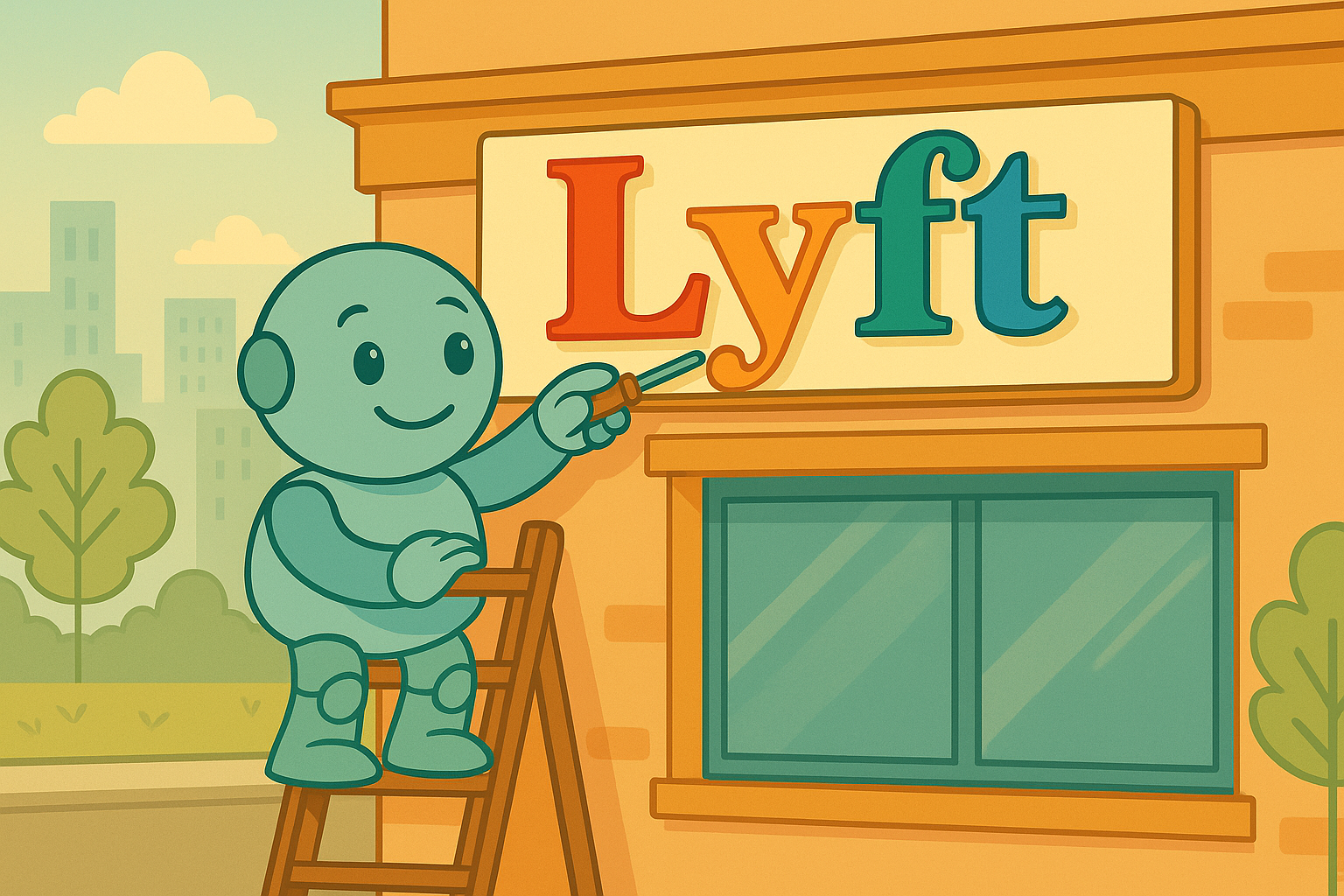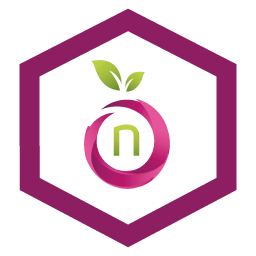Top Catchy Business Name Ideas to Spark Your Brand
Need a Catchy Business Name? Start Here.
A strong business name is crucial for brand success. It's the first impression and the foundation of your brand identity. Finding catchy business name ideas can be tough, but this listicle simplifies the process. Learn 10 effective naming techniques, from alliteration and portmanteaus to using foreign words and evocative metaphors, to create a memorable and impactful name. These proven methods will help your business stand out and resonate with your target audience.
1. Alliterative Naming
When brainstorming catchy business name ideas, alliterative naming is a powerful technique that leverages the repetition of consonant sounds. This creates a memorable rhythm and a distinct verbal identity that can help your brand stand out from the competition. By using the same sound or letter at the beginning of adjacent or closely connected words, you create a name that's not only fun to say but also easier to remember, increasing the likelihood that it sticks in customers' minds. This sonic branding technique can be highly effective in making your business name resonate with your target audience.

The phonetic appeal of alliteration enhances memorability. Think of iconic brands like Coca-Cola, PayPal, Dunkin' Donuts, Best Buy, and Krispy Kreme. Their alliterative names contribute significantly to their brand recognition. This technique is particularly effective for verbal marketing channels like radio advertisements, where the rhythmic quality of the name makes it instantly recognizable. This method deserves its place on this list because it offers a simple yet highly effective way to create a catchy and memorable business name.
Features of Alliterative Naming:
- Repetition of consonant sounds: The core element of this technique.
- Phonetic appeal: Creates a pleasing sound that is easy on the ears.
- Enhanced memorability: Makes the name stick in the minds of consumers.
- Rhythmic quality: Adds a musicality to the name, making it more engaging.
Pros:
- Highly memorable: Easy recall for customers.
- Creates a distinct verbal identity: Helps your brand stand out.
- Often shorter and punchier: Easier to use across different platforms.
- Works well for verbal marketing: Particularly effective in radio ads and word-of-mouth marketing.
Cons:
- Can seem gimmicky if overused: Avoid forced alliteration.
- May limit your naming options: Finding the right words can be challenging.
- Might not translate well to other languages: Consider your target market.
Tips for Effective Alliterative Naming:
- Keep it simple: Two or three words maximum is ideal. Brevity is key for memorability.
- Test the name: Say it out loud repeatedly to ensure it flows smoothly and is easy to pronounce.
- Easy spelling: Despite the alliteration, the name should be easy to spell to avoid confusion.
- Avoid tongue twisters: Ensure the name is easy to articulate and doesn't create pronunciation difficulties.
When and Why to Use Alliteration:
Alliterative naming is a particularly good choice for businesses targeting a broad consumer base, especially in industries like food and beverage, retail, and entertainment. It's a powerful tool for creating a catchy business name that's easy to remember and pronounce, contributing to strong brand recognition. Consider this technique if you want a name that is inherently memorable and stands out in a crowded marketplace. While popularized by consumer product companies in the mid-20th century and fast food/retail chains seeking memorable branding, alliterative naming remains a relevant and effective technique for businesses of all sizes today.
2. Portmanteau Naming
For truly unique and catchy business name ideas, consider the power of the portmanteau. A portmanteau is a linguistic blend of two or more words, combining their sounds and meanings to create a new, memorable term. This naming strategy allows you to convey multiple concepts simultaneously while remaining concise and impactful. It's a powerful way to encapsulate your brand's essence in a single, distinctive word.

Think of some of the most recognizable brands today: Microsoft (microcomputer + software), Netflix (internet + flicks), and Pinterest (pin + interest). These are all prime examples of successful portmanteau naming. They are catchy, easy to remember, and hint at the services they offer. This approach allows for a high degree of brand uniqueness, crucial in today's competitive landscape. By fusing core concepts into a single word, a portmanteau instantly communicates a story, conveying innovation and a sense of cleverness. This makes the name intriguing and fosters curiosity among potential customers.
This method is particularly valuable for tech startups, new product launches, and businesses looking to project a modern, innovative image. Corporate brand managers seeking a fresh approach, marketing agencies crafting unique identities for clients, and even freelancers looking to establish a memorable personal brand can leverage the power of portmanteaus.
Features and Benefits:
- Word blending: Seamlessly integrates parts of two or more words.
- Conceptual fusion: Combines the core ideas behind the chosen words.
- Linguistic creativity: Offers a playground for innovative wordplay.
- Brand uniqueness: Creates highly distinctive and memorable names.
Pros:
- Creates truly unique names that stand out from the competition.
- Can effectively tell a brand story through the word combination.
- Often readily available as domains and trademarks.
- Conveys a sense of innovation and forward-thinking.
Cons:
- May require some initial explanation to clarify the meaning.
- Can be difficult to spell or pronounce if not carefully constructed.
- Might seem forced or artificial if the blend isn't natural.
Tips for Creating Effective Portmanteaus:
- Ensure the blended word sounds natural and flows smoothly. Avoid awkward combinations.
- Test the portmanteau for ease of pronunciation. Say it aloud multiple times and ask others for their feedback.
- Carefully consider the meanings of both original words. Ensure the combined meaning aligns with your brand identity.
- Keep it relatively short (under 10 letters if possible). Shorter names are generally easier to remember and use.
Portmanteau naming, popularized by tech startups and rooted in literary traditions like the works of Lewis Carroll, offers a powerful pathway to catchy business name ideas. While requiring careful consideration and construction, the result can be a brand name that is not only memorable but also deeply resonant with your brand's core values and offerings. This is why portmanteau naming deserves a prominent place in any discussion about creating impactful business names.
3. Evocative Metaphor Names
Looking for catchy business name ideas? Evocative metaphor names offer a powerful way to create a memorable and resonant brand identity. Instead of directly describing your business, this approach uses suggestive imagery and associations to evoke feelings, qualities, or aspirations that align with your brand's values and vision. This allows you to create a deeper connection with your audience on an emotional level.

Think of brands like Amazon, evoking vastness and variety, or Apple, suggesting simplicity and accessibility. These names leverage symbolic meaning and emotional resonance to tell a story and build a strong brand image. Nike, named after the Greek goddess of victory, embodies aspiration, while Twitter, mimicking the sound of quick, brief chirps, perfectly captures the nature of its platform. Even Patagonia, named after a remote and exotic region, evokes a sense of adventure and exploration. These evocative metaphor names differentiate these companies from more descriptive competitors and have allowed them to evolve beyond their initial product offerings. This strategy deserves a place on this list because it offers long-term brand-building potential that transcends simple product descriptions.
Features of Evocative Metaphor Names:
- Symbolic meaning: The name represents something larger than the product or service itself.
- Emotional resonance: The name connects with the audience on a feeling level.
- Aspirational quality: The name suggests a desired outcome or state of being.
- Storytelling potential: The name hints at a narrative that can be further developed through branding and marketing.
Pros:
- Creates strong brand imagery and memorability.
- Differentiates your business from descriptive competitors.
- Allows the brand to evolve and expand beyond initial offerings.
- Often results in shorter, more impactful names.
Cons:
- May require more marketing effort to establish the intended meaning.
- What the business does is less immediately clear to the audience.
- Securing available trademarks and domain names can be challenging due to popularity.
Tips for Choosing an Evocative Metaphor Name:
- Align with your brand values: The chosen metaphor should reflect the core principles and identity of your business.
- Test associations with your target audience: Ensure the evoked feelings and imagery resonate positively with your intended customers.
- Consider cultural differences: Be mindful of how the metaphor might be interpreted across different cultures.
- Avoid excessive abstraction: While evocative, the name should still be memorable and reasonably easy to understand.
Popularized By:
Visionary leaders like Steve Jobs of Apple Computer and Richard Branson of Virgin Group have effectively used evocative metaphor names to build iconic brands. This approach is increasingly adopted by major brands seeking to transcend product categories and establish lasting emotional connections with their audiences. This method is excellent for startup founders, corporate brand managers, marketing agencies and consultants, freelancers, solopreneurs, and anyone looking to create a memorable and impactful brand. By carefully selecting a metaphor that aligns with your brand values and resonates with your target audience, you can create a catchy business name that sets your venture apart.
4. Misspelled Word Naming
Misspelled word naming is a distinctive approach to branding that involves intentionally altering the spelling of common words to create a unique business name. This technique allows businesses to stand out from the competition while potentially increasing the availability of desirable domain names and simplifying the trademark registration process. By subtly twisting familiar words, businesses can achieve a memorable brand identity that is both recognizable and novel. This method adds a touch of creative flair, making the name more catchy and increasing its stickiness in the minds of consumers.

This naming strategy offers several advantages. It often improves domain name and trademark availability, a significant hurdle in today's saturated digital landscape. The altered spelling creates instant differentiation, helping your brand stand apart in crowded markets. While the spelling is changed, the phonetic equivalence ensures that the name remains easily recognizable and pronounceable. This technique also offers the potential for a unique visual identity, providing a foundation for a memorable logo and overall brand aesthetic. Think of how the stylized spellings of "Flickr" or "Tumblr" contribute to their distinctive branding.
However, misspelled word naming also has potential drawbacks. It can appear unprofessional in certain industries, particularly in formal or traditional sectors. Potential spelling confusion can arise in word-of-mouth marketing, requiring clarification and potentially hindering organic growth. The approach may also appear trendy rather than timeless, leading to a shorter brand lifespan. Finally, search engine optimization can be slightly more challenging, as users may misspell the name when searching online.
Examples of successful misspelled word naming include companies like Lyft (lift), Fiverr (fiver), Tumblr (tumbler), Reddit (read it), and Flickr (flicker). These companies have leveraged misspelled words to create memorable and impactful brands, especially within the tech industry. This strategy gained popularity during the Web 2.0 boom in the mid-2000s when domain names were becoming scarce and startups sought creative ways to secure online real estate. Tech companies looking for available trademarks also found this method particularly useful.
For those considering this approach, several tips can ensure its effectiveness. Keep the pronunciation intuitive despite spelling changes, avoiding alterations that drastically change how the word is spoken. Test the name with potential customers to ensure clarity and avoid confusion. Consider how the misspelled word looks visually in a logo and other branding materials. Limit misspelling to one word in the business name to avoid overwhelming customers. Finally, ensure the misspelled word doesn't translate into something unintended or offensive in other languages.
Misspelled word naming deserves a place on this list of catchy business name ideas because it offers a potent blend of familiarity and uniqueness. It provides a pathway to a memorable and distinctive brand identity, particularly for startups and tech companies aiming for a modern and edgy feel. By carefully considering the pros and cons and following the tips provided, entrepreneurs can harness the power of misspelled words to create a brand name that resonates with their target audience and stands the test of time. This method offers a powerful tool for businesses seeking catchy business name ideas that help them break through the noise and establish a strong presence in the market.
5. Acronym-Based Naming
Acronym-based naming offers a powerful strategy for creating catchy business name ideas, transforming lengthy descriptions into concise and memorable brands. This method involves using the initial letters of a longer phrase or company description to form a shortened, pronounceable name. Think of instantly recognizable brands like IBM (International Business Machines) or NASA (National Aeronautics and Space Administration). These catchy business name ideas demonstrate the effectiveness of acronyms in simplifying complex concepts while retaining their core meaning. This approach is particularly valuable in today's fast-paced world, where short, punchy names are easily recalled and shared.
This method works by distilling the essence of your business into a few key words, then using their first letters to form the acronym. For example, a "Custom Software Development Company" could become CSDC. The resulting acronym can then be further refined to enhance pronounceability and memorability.
Several features contribute to the appeal of acronym-based names:
- Letter-based abbreviation: Provides a systematic way to condense lengthy names.
- Condensed meaning: Retains the essence of the original description in a shorter form.
- Potential for dual interpretations: Opens opportunities for creative wordplay and brand storytelling.
- Brevity: Creates names that are easy to remember, pronounce, and use across various platforms.
Pros:
- Creates short, memorable names that are easy to recall and share.
- Simplifies complex business descriptions into easily digestible brands.
- Often available as domain names, simplifying online presence establishment.
- Works well internationally, transcending language barriers.
- Can evolve beyond the original meaning, allowing for brand expansion and diversification.
Cons:
- May initially lack meaning without explanation, requiring initial marketing efforts to establish brand identity.
- Similar acronyms can cause confusion, necessitating thorough research and trademark checks.
- Can feel corporate or impersonal, potentially hindering connection with specific target audiences.
- Difficult to trademark common letter combinations, requiring careful selection and strategic branding.
Examples of Successful Implementations:
Besides IBM and NASA, other successful examples include BMW (Bavarian Motor Works), IKEA (Ingvar Kamprad Elmtaryd Agunnaryd), and ASOS (As Seen On Screen). These catchy business name ideas demonstrate the versatility and effectiveness of acronym-based naming across diverse industries.
Tips for Creating Effective Acronym-Based Names:
- Pronounceability: Ensure the acronym is easy to pronounce and doesn't sound awkward or forced.
- Unintended Meanings: Double-check that the acronym doesn't spell something unintended or offensive in different languages.
- Acronym Conflicts: Research existing acronyms in your industry to avoid confusion and potential legal issues.
- Meaningful Words: If possible, try to create an acronym that forms a pronounceable word or evokes a relevant image. Learn more about Acronym-Based Naming can provide further insights into this process.
When and Why to Use this Approach:
Acronym-based naming is particularly suitable for:
- Large corporations: Seeking simplified global identities.
- Government and institutional organizations: Aiming for clear and recognizable abbreviations.
- Professional service firms: Wanting to project an image of professionalism and expertise.
- Startups with complex descriptions: Looking to condense their value proposition into a memorable brand.
Acronyms offer a powerful pathway to catchy business name ideas. By carefully considering the pros and cons and following the tips outlined above, you can leverage this method to create a brand name that is both memorable and impactful.
6. Geographic Naming
For businesses aiming to establish a strong local presence and tap into community pride, geographic naming offers a powerful branding strategy. This method incorporates location elements—cities, regions, landmarks, or geographical features—into business names, creating immediate associations with particular places and their characteristics. This approach is a great way to generate catchy business name ideas that resonate with a target audience.
Geographic naming works by leveraging the existing recognition and connotations associated with a specific location. For example, a name like "Aspen Ski Rentals" instantly evokes images of snowy mountains and luxurious winter vacations. This immediate connection can be a powerful shortcut to building brand identity and attracting customers. It suggests heritage, authenticity, and a deep understanding of the local market.
Features and Benefits:
- Location-based identity: Instantly communicates the business's geographic area of operation.
- Regional association: Connects the brand with the unique characteristics and culture of a region.
- Heritage suggestion: Implies a connection to local history and traditions.
- Community connection: Fosters a sense of belonging and local pride.
Examples of Successful Implementation:
- Amazon: Named after the world's largest river, suggesting scale and abundance.
- Patagonia: Evokes the rugged beauty and adventurous spirit of the South American region.
- Brooklyn Brewery: Clearly identifies its origin and connects with the trendy, artisanal image of Brooklyn.
- Nantucket Nectars: Leverages the idyllic island imagery of Nantucket, associating the brand with freshness and natural ingredients.
- Chicago Pizza: Instantly communicates the style and origin of the pizza.
Pros:
- Creates strong local identity and customer loyalty: Appeals to local pride and fosters a sense of community.
- Instantly communicates location or origin: Customers immediately understand where the business operates or where its products come from.
- Adds authenticity and heritage value: Suggests a connection to local history and traditions, adding depth to the brand story.
- Appeals to local pride and tourism: Can attract both local customers and tourists seeking authentic experiences.
Cons:
- May limit perceived reach for expansion: A geographically specific name can make it challenging to expand into new markets.
- Location may carry unintended associations: Negative perceptions associated with a location could impact the brand.
- Less distinctive in local markets: In areas saturated with businesses using similar geographic names, it can be harder to stand out.
- Potential legal issues with some place names: Certain geographic names may be protected trademarks or require special permissions for use.
Tips for Using Geographic Naming:
- Consider how the location name will resonate outside your region: Research potential interpretations and connotations in other markets.
- Verify no trademark issues with the geographic name: Conduct a thorough trademark search to avoid legal problems.
- Ensure the location aligns with your brand values: The chosen location should reflect the brand's personality and target audience.
- Test international pronunciation if expanding globally: Ensure the name is easy to pronounce and understand in different languages.
Popularized By:
Geographic naming has been successfully employed by various businesses, including regional food and beverage companies, tourism-related businesses, locally-focused retail chains, and craft producers emphasizing provenance.
This method deserves a place on this list of catchy business name ideas because it offers a powerful way to connect with a specific audience, build brand authenticity, and leverage the existing associations of a place. By carefully considering the pros and cons and following the tips outlined above, businesses can harness the power of geographic naming to create a memorable and impactful brand identity.
7. Compound Word Naming
Crafting a catchy business name is crucial for attracting customers and establishing a strong brand identity. Among the most effective strategies is compound word naming, a technique that deserves its place on this list for its ability to create memorable and meaningful names that resonate with audiences. This approach combines two or more existing words to form a new, evocative name that captures the essence of your business. If you're looking for catchy business name ideas, compound word naming offers a powerful pathway to success.
Compound word naming works by leveraging the inherent meanings of individual words and fusing them to create a richer, more descriptive name. This process amplifies the meaning conveyed, offering a concise way to communicate multiple concepts simultaneously. The familiarity of the component words makes the new name instantly recognizable and easy to understand, boosting its memorability. For example, "Facebook" combines "face" and "book," immediately suggesting a collection of faces, or profiles, like a yearbook.
Features and Benefits:
- Word Combination: The core of this method lies in the strategic blending of words.
- Meaning Amplification: The combined words create a meaning greater than the sum of its parts.
- Linguistic Familiarity: Using existing words increases the name's accessibility and understanding.
- Descriptive Potential: Compound names can concisely describe a brand's offerings or values.
Pros:
- Creates Clear Meaning: Leveraging familiar words fosters immediate comprehension.
- Domain Availability: Compound names are often more available as domain names than single words.
- Concise Description: They allow for descriptive elements while remaining brief and impactful.
- Intuitive Pronunciation and Spelling: Familiarity with the component words typically ensures easy pronunciation and spelling.
Cons:
- Potential Length: Combining words can sometimes result in lengthy names.
- Lack of Uniqueness: Using common word combinations can diminish originality.
- Limited Evolution: The name might feel restrictive if the business expands beyond its initial scope.
- Forced Sounding: Poorly combined words can sound contrived or awkward.
Examples of Successful Implementations:
Several highly successful companies have employed compound word naming, demonstrating its effectiveness:
- Facebook: Connecting people through online profiles.
- YouTube: A platform for user-uploaded videos ("you" emphasizing user-generated content and "tube" referring to older television technology).
- LinkedIn: Linking professionals together.
- Salesforce: Software designed to empower sales teams.
- Snapchat: Emphasizing the ephemeral nature of the messages (snaps).
Actionable Tips for Using Compound Word Naming:
- Limit to Two Words: Brevity is key. While more words are possible, two-word combinations are often the most impactful.
- Test the Flow: Say the name aloud repeatedly to ensure it sounds natural and smooth.
- Consider Shortening: If a compound name feels long, explore ways to shorten it while retaining its essence.
- Verify Domain Availability: Check for available domains for both hyphenated (e.g., Snap-Chat) and combined (e.g., Snapchat) versions.
- Check for Unintended Meanings: Ensure the combined words don't create any negative or unintentional connotations in different languages or cultures.
When and Why to Use This Approach:
Compound word naming is particularly effective for:
- Digital Platforms and Social Media Companies: Concisely conveying the platform's purpose.
- SaaS and Technology Businesses: Describing the software's function or target audience.
- Direct-to-Consumer Brands: Clearly communicating the product's benefits or value proposition.
By strategically combining words, you can craft a catchy business name that is both memorable and meaningful, contributing significantly to your brand's success. This approach offers a practical and creative path to finding a name that truly resonates with your target audience.
8. Foreign Word Naming
Looking for catchy business name ideas that evoke a sense of sophistication and global appeal? Foreign word naming might be the perfect strategy for you. This approach leverages the inherent beauty and intrigue of words from languages other than your target market's primary language to create distinctive and memorable brand names. This method can be particularly effective in crafting catchy business name ideas that stand out from the competition.
Foreign word naming works by tapping into the exoticism and unique sounds of different languages. It can add a layer of perceived sophistication, authenticity, or even a touch of mystery to your brand. The technique can also create a strong connection to a particular culture or heritage, especially if relevant to your products or services. For instance, a company specializing in Italian leather goods might choose an Italian word that reflects craftsmanship or elegance. The use of a foreign word also often results in names that are more available as domains and trademarks, a significant advantage in today’s crowded digital landscape.
Several well-known brands have successfully employed this strategy. Think of Häagen-Dazs, a name designed to sound Scandinavian, evoking a sense of quality and craftsmanship, even though it’s completely made up. Verizon, a combination of the Latin words veritas (truth) and horizon, suggests a forward-thinking and trustworthy company. Other examples include Alterra (Latin for "all earth"), Audi (Latin for "listen"), and Samsung (Korean for "three stars"). These catchy business name ideas demonstrate the power of foreign words to create a strong brand identity.
Features and Benefits:
- Linguistic exoticism: Captures attention and creates intrigue.
- Cultural connection: Establishes a link to a specific heritage or tradition.
- Internationalization: Projects a global outlook and wider appeal.
- Distinctive pronunciation: Makes the name more memorable and unique.
Pros:
- Adds perceived sophistication or authenticity to your brand.
- Creates a distinctive identity that sets you apart from competitors.
- Often results in names that are more readily available as domains and trademarks.
- Can connect to a heritage relevant to your products or services, strengthening brand narrative.
Cons:
- Potential pronunciation difficulties for your target market.
- May have unintended or negative meanings in the source language.
- Potential for cultural appropriation if not handled sensitively.
- Can present translation challenges when expanding into international markets.
Tips for Effective Foreign Word Naming:
- Ensure pronounceability: The chosen word should be easily pronounceable for your target audience.
- Verify meaning and connotations: Thoroughly research the word's actual meaning and any associated connotations in the source language.
- Consider cultural sensitivity: Be mindful of potential cultural appropriation issues and seek expert advice if necessary.
- Provide pronunciation guides: Include pronunciation guides in your early marketing materials to aid correct pronunciation.
- Test with native speakers: Consult with native speakers of the language to ensure accuracy and cultural appropriateness.
When to Use This Approach:
This naming strategy is particularly suitable for:
- Luxury brands seeking elevated positioning.
- Food and beverage companies highlighting authentic origins.
- Automotive and technology companies suggesting precision or engineering excellence.
Foreign word naming offers a powerful way to create catchy business name ideas that resonate with your target audience. By carefully considering the pros and cons and following the tips provided, you can harness the potential of this technique to build a strong and memorable brand. Learn more about Foreign Word Naming This approach deserves its place in this list because it provides a unique and often untapped resource for creating brand names that are both catchy and meaningful.
9. Invented Word Naming
Looking for truly catchy business name ideas? Invented word naming might be the perfect approach for crafting a unique brand identity. This method involves creating entirely new words, devoid of prior meaning or usage. This offers unparalleled distinctiveness and strong trademark protection, giving you a blank canvas to build your brand meaning from the ground up. This makes it a particularly appealing option for those seeking truly catchy business name ideas that stand out from the crowd.
Invented word naming works by leveraging phonetics, creative wordplay, and a deep understanding of your target audience. The goal is to create a word that is not only memorable and pronounceable but also evocative of the brand's essence. This requires careful consideration of sound symbolism, the emotional impact of different sounds, and how the word looks visually.
Successful examples of invented word naming abound. Kodak, created to be unique and pronounceable worldwide, became synonymous with photography. Xerox, while derived from "xerography," became a unique and powerful brand in its own right. Even Google, a variation of "googol" (the number 1 followed by 100 zeros), demonstrates the power and memorability of a well-crafted invented name. Other prominent examples include Skype and Rolex, demonstrating the versatility of this approach across different industries.
Features and Benefits of Invented Word Naming:
- Complete originality: Guarantees a unique brand name unlike any other.
- Trademark availability: Significantly increases the likelihood of securing a trademark.
- Meaning flexibility: Allows you to define the brand meaning from scratch.
- Distinctive identity: Creates a strong and memorable brand presence.
Pros:
- Extremely high distinctiveness
- Excellent trademark and domain availability
- Freedom to build your own brand associations
- Works well internationally
- No pre-existing connotations
Cons:
- Requires significant marketing to establish meaning
- Can be difficult to remember initially
- May face pronunciation confusion
- Potential for seeming artificial or corporate
Tips for Creating an Invented Word:
- Keep it short and pronounceable: Aim for simplicity and ease of recall.
- Test for unintended meanings in major languages: Avoid embarrassing or negative connotations in different cultures.
- Ensure it's phonetically simple: Minimize potential pronunciation difficulties.
- Consider how it looks visually: A visually appealing word can enhance brand recognition.
- Verify domain availability: Secure your online presence early on.
This approach is particularly suitable for startups aiming for disruptive innovation, global corporations seeking universal branding, and technology companies striving for distinctive identities. If your brand prioritizes standing out from the competition and building a unique brand identity from the ground up, invented word naming is an excellent strategy.
Learn more about Invented Word Naming
This method deserves its place on this list of catchy business name ideas because it offers the ultimate in brand differentiation. While it requires a greater initial investment in marketing to establish meaning, the long-term benefits of owning a truly unique and memorable brand name can be substantial. By carefully considering the pros and cons and following the tips provided, you can harness the power of invented word naming to create a catchy and impactful brand name that resonates with your target audience.
10. Founder-Based Naming
Founder-based naming offers a powerful way to craft catchy business name ideas that resonate with authenticity and heritage. This approach leverages the name of the company's founder, either directly or through a modified version, to create a brand intrinsically linked to a human identity. This connection fosters a sense of personal legacy and can be a strong differentiator in a crowded marketplace. This method deserves its place on this list because it offers a unique blend of personal connection and brand building, resulting in names that are often memorable and impactful.
This method works by essentially embedding the founder's identity into the brand itself. It tells an immediate origin story and gives the business a human face. Think of it as building a brand around a person, allowing their values, vision, and story to become interwoven with the company's narrative. This can be particularly effective for startups and small businesses looking to establish credibility and trust quickly.
Features and Benefits:
- Personal Connection: Creates a direct link between the founder and the brand, fostering customer loyalty and engagement.
- Heritage Establishment: Instantly imbues the brand with a sense of history and legacy, even for new businesses.
- Authenticity Signaling: Conveys a genuine and transparent image, especially valuable in today's market.
- Legacy Building: Positions the founder as a key figure in the company's narrative, enhancing their reputation alongside the brand's growth.
Pros:
- Creates authentic brand heritage.
- Tells an immediate origin story.
- Personalizes the business.
- Often distinctive and available as trademarks.
- Builds founder reputation alongside the company.
Cons:
- Can be limiting if the founder becomes controversial.
- May be difficult to sell or transfer ownership psychologically.
- Potential pronunciation or spelling challenges, especially in international markets.
- Can seem egotistical in some contexts.
Examples of Successful Implementation:
Some of the most recognizable brands in the world have utilized founder-based naming:
- Dell (Michael Dell): The computer giant bears the name of its founder, instantly associating the brand with his innovative spirit and entrepreneurial journey.
- Disney (Walt Disney): A name synonymous with magic and entertainment, inextricably linked to the creative genius of its founder.
- Ford (Henry Ford): A legacy of automotive innovation, forever tied to the name of its pioneering founder.
- Adidas (Adi Dassler): A portmanteau of the founder's nickname and surname, creating a catchy and memorable brand name.
- Gucci (Guccio Gucci): A name that epitomizes luxury and style, reflecting the founder's vision and craftsmanship.
Actionable Tips for Using Founder-Based Naming:
- Consider using your first name for approachability or last name for professionalism: Choose the option that best reflects your brand identity and target audience.
- Test for pronunciation and spelling simplicity: Ensure the name is easy to understand and remember, especially for international audiences.
- Consider potential for international use: Research how the name translates and is perceived in different cultures.
- Plan for brand continuity beyond founder involvement: Consider how the name will resonate if the founder steps back from the company.
- Consider privacy implications for the founder: Be aware of the increased public visibility associated with using your name for your brand.
When and Why to Use This Approach:
Founder-based naming is particularly suitable for:
- Startups and small businesses: It can help establish credibility and a personal connection with customers.
- Personal brand-based businesses: When the founder is the brand, this approach is a natural fit.
- Businesses with a strong founder story: If the founder's journey is compelling and resonates with the brand's values, this method can effectively communicate that narrative.
By carefully considering the pros and cons and following the tips provided, you can leverage the power of founder-based naming to create a catchy business name that builds a lasting legacy and resonates with your target audience. This approach isn’t just about slapping a name on a product; it's about weaving a personal story into the fabric of your brand, creating a unique and memorable identity in the process.
Top 10 Business Name Styles Compared
| Business Name Idea | Implementation Complexity ? | Resource Requirements ⚡ | Expected Outcomes ? | Ideal Use Cases ? | Key Advantages ⭐ |
|---|---|---|---|---|---|
| Alliterative Naming | Low - simple phonetic technique | Low - minimal resources needed | High memorability and verbal appeal | Consumer products, retail, verbal marketing (radio) | Highly memorable, catchy, distinct verbal identity |
| Portmanteau Naming | Medium - requires linguistic creativity | Medium - time for blending/testing | Unique, innovative names that tell a story | Tech startups, innovative brands | Unique blend, conveys multiple concepts, innovation |
| Evocative Metaphor Names | Medium to High - symbolic and emotional depth | Medium to High - strategic marketing | Strong brand imagery, emotional resonance | Brands seeking aspirational, emotional connection | Powerful storytelling, differentiation, brand impact |
| Misspelled Word Naming | Low to Medium - altering spellings | Low to Medium - testing pronunciation | Distinctive, improved domain/trademark availability | Startups, tech firms, domains scarcity periods | Easy differentiation, domain availability, uniqueness |
| Acronym-Based Naming | Medium - abbreviation and meaning condensation | Low - short and concise | Short, memorable names simplifying complex terms | Large corporations, institutions, professional services | Brevity, memorability, international usability |
| Geographic Naming | Low - incorporate location name | Low - simple integration | Strong local identity, authenticity | Local businesses, tourism, heritage-focused brands | Local loyalty, authenticity, heritage appeal |
| Compound Word Naming | Medium - combining familiar words | Medium - ensuring meaningful combinations | Clear meaning, intuitive and descriptive names | Digital platforms, SaaS, direct-to-consumer brands | Clear meaning, intuitive, descriptive yet concise |
| Foreign Word Naming | Medium - requires cultural and linguistic checks | Medium - cultural sensitivity and testing | Sophisticated, distinctive, international appeal | Luxury, food/beverage, automotive, tech | Adds sophistication, exotic, connects to heritage |
| Invented Word Naming | High - creating new original words | High - strong marketing to build meaning | High distinctiveness, trademark protection | Global brands, tech companies, startups aiming for unique | Originality, trademark availability, global usability |
| Founder-Based Naming | Low to Medium - using personal names | Low to Medium - depends on founder input | Authentic, heritage-rich brand image | Family businesses, luxury fashion, personal brands | Authenticity, legacy, personal connection |
Ready to Craft Your Perfect Business Name?
Finding the perfect business name is more than just a formality; it's the foundation upon which your brand identity is built. From alliterative names that roll off the tongue to evocative metaphors that spark curiosity, and from the clever use of portmanteaus to the strategic deployment of acronyms, this article has explored a diverse range of catchy business name ideas to inspire your creative process. We've also touched upon the nuances of geographic naming, compound words, foreign words, invented words, and even founder-based names, highlighting the potential of each approach to contribute to a memorable and effective brand name. Mastering these techniques allows you to craft a name that not only resonates with your target audience but also encapsulates your brand's essence, values, and unique selling propositions. This strong foundation is crucial for building brand recognition, attracting customers, and ultimately driving business growth. Remember, your business name is often the first impression you make – make it count.
Ready to transform your catchy business name ideas into reality? Explore the endless possibilities and streamline your naming process with NameRobot. This powerful tool helps you generate creative, unique, and brand-appropriate names, making your journey to the perfect business name smoother and more efficient. NameRobot is the ideal partner for turning your naming vision into a tangible asset.















